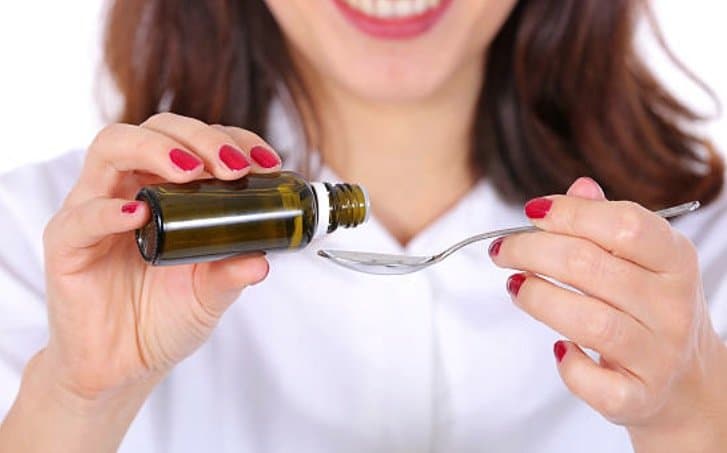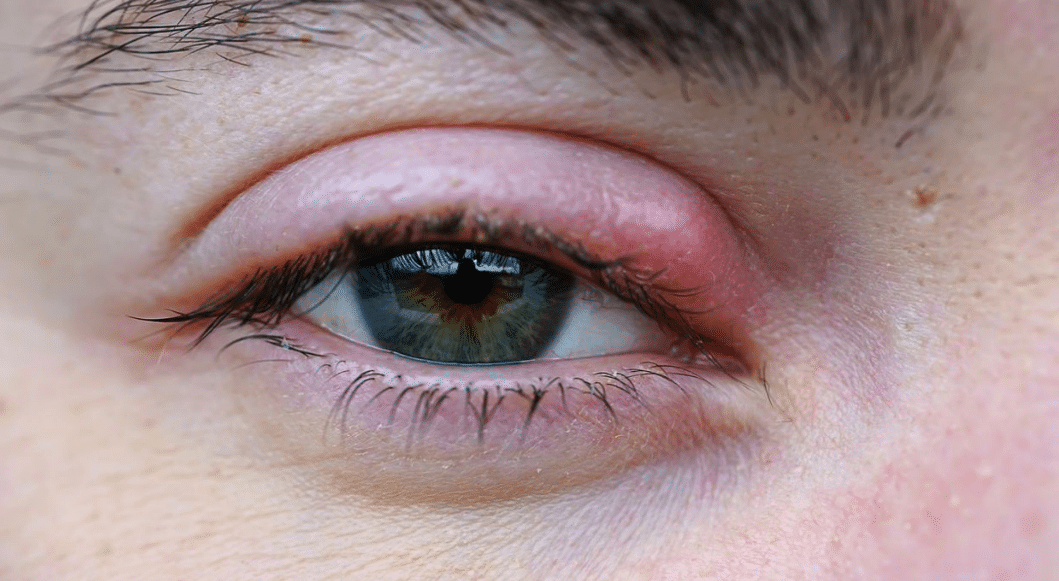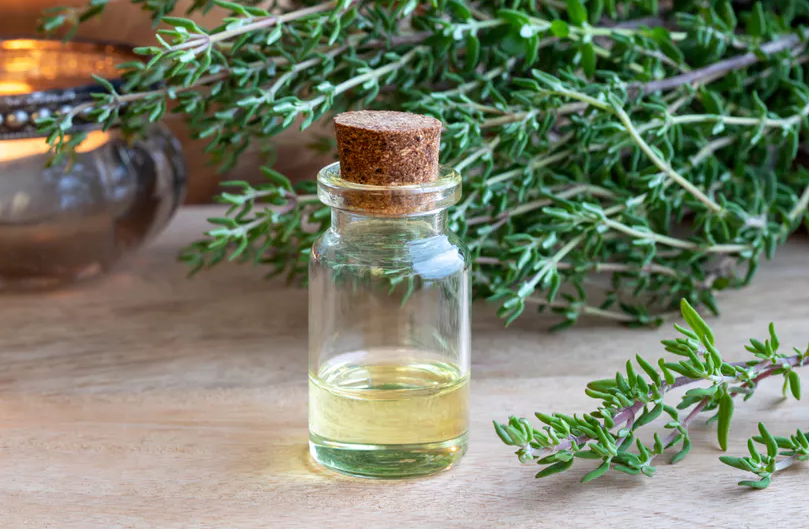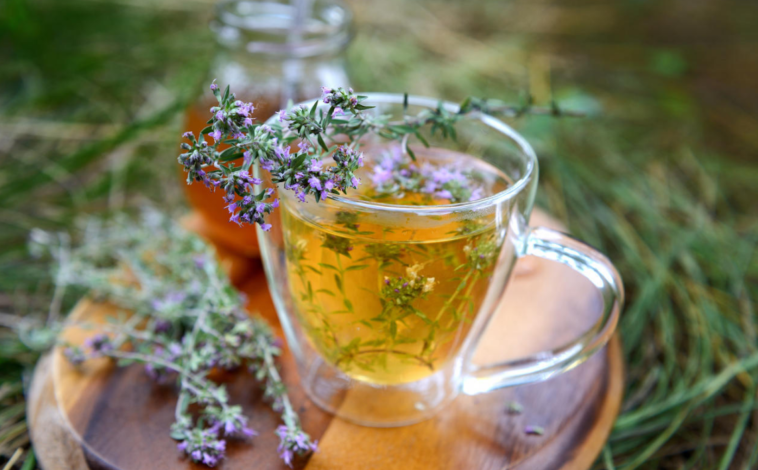In autumn and winter, the cold is often accompanied by illnesses, particularly ENT. But all year round, especially in cases of pollen allergy, there are times when we cough, when our nose runs and when we feel at our worst. So it’s always nice to be able to count on these good old grandmother’s natural remedies that never let us down. At the top of the shopping list, we of course note honey or even lemon. However, also don’t forget thyme which is king when it comes to fighting respiratory system infections. This unstoppable ally of the airways and our health is antiseptic, antibacterial, antispasmodic, depurative, calming and stimulating at the same time. In short, the benefits and virtues of thyme are multiple and we present to you how to use this panacea to heal yourself!
1) Thyme infusion to treat respiratory diseases

At the slightest sign of cold, bronchitis, sinusitis, flu or cough, thyme infusion is essential ! In addition, it addresses viral infections and sore throats as well as winter or fall fatigue. Against winter ailments, don’t hesitate to drink this thyme herbal tea all day long. To do this, we take between 15 and 25 g of dried leaves of this aromatic herb with medicinal properties to infuse in boiling water. Here, do not hesitate to opt for the highest dosage in case of a virus. And if you have transit, digestion or constipation problemsyou can put this infusion in the fridge. Bue cold (very important), it will relieve your intestinal flora and improve your digestive comfort. Finally, you may not know it, but thyme tea is a very effective natural dewormer in humans.
2) Thyme in syrup to treat coughs

We love his antitussive and expectorant properties in case of nocturnal cough. It is also ideal when you are tired of coughing all day and your throat is prone to irritation. To make a sweet syrup, there are two recipes:
-
The unstoppable honey recipe:
Infuse 600 ml of simmering water for 20 minutes with 25 g of thyme, 2 cinnamon sticks and 25 g of fresh borage leaves and flowers (in herbalism). Then, filter and reduce by half under a lid to keep all the essential oils in the mixture and the active ingredients in the pan. Then, add 100 g of good honey and the juice of a small lemon and mix over low heat for 5 minutes before cooling and bottling. Take 3 teaspoons per day of this very effective cough syrup which keeps for 2 to 3 months in the fridge.
Boil 30 g of thyme in 500 ml of water for 5 minutes. Then let it infuse for 2 hours and add as much sugar as the infusion. This will give you a syrup to take 2 to 3 times a day maximum. Indeed, this syrup is simpler to make, but also much sweeter ! Don’t overdo it.
3) Thyme compresses against styes

Thyme is one of the most powerful natural solutions against a stye (or oriole). In fact, it will disinfect the eyelid thanks to its antiseptic and antibacterial properties. And what’s more, it helps improve blood circulation and accelerate the healing of the swollen area. For greater efficiency, we do not hesitate to use it combine fresh basil and chamomile flowers (10 g of each). Then boil a cup of spring water, throw the plants in, cover and let it infuse for 10 minutes. All you have to do is soak a sterile compress with this cooled natural remedy and apply it morning and evening.
4) Dry thyme or in the bath to relieve pain

Certainly, thyme acts as a real tonic for the body. However, this does not prevent him from establishing himself as an eexcellent muscle relaxant. So, we love to infuse 200 to 500 g of it in water which will be added to the bath. Against osteoarthritis, gout and rheumatic pain, it couldn’t be simpler or more basic with such effectiveness! And what’s more, this thyme bath facilitates expectoration et thins phlegm sick people. As a result, the bath will calm your pains and ailments while revitalizing your body. Otherwise, we also really like making little cushions with dried flowers and stems. Warmed then placed on the lower abdomen, they will remove the stomach cramps or menstrual pain. Good news: these heated cushions can also be placed on old rheumatism, for example.
5) Thyme lotion for hair

If your scalp is irritated or that your hair is very weakenedyou will love this fortifying, soothing and cleansing lotion. To make it, boil 100 g of thyme tops in 1 liter of water, covered. Then let it steep (still covered) for 5 to 10 minutes. All you have to do is apply this natural lotion all over your hair then massage the scalp deeply for a few moments to boost the effects of the thyme. You can also make a rinse with apple cider vinegar to keep the soothing active ingredients and give more to the hair. lots of shine and softness.
6) And to treat yourself with thyme essential oil?

Like the plant, linalool thyme essential oil is essential in winter! It allows to strengthen the immune systemto do good for morale and fight respiratory infections. On the other hand, you must keep in mind that it is not used on children under 6 years old. In addition, pregnant and breastfeeding women should seek advice from their doctor or pharmacist before using it. Here are these uses:
-In diffusion in the humidifier, it purifies the air. Perfect when a family member is sick!
-Also, you can put 2 drops on a tissue to breathe deeply. This gives you will restore energy.
–In disease preventionyou can put 1 to 2 drops on sugar or in honey every morning.
-Finally you can make a acne treatment to use morning and evening. Here, dilute 10 drops with 34 drops of tea tree in 30 ml of jojoba oil. This will purify the skin effectively.
Treat yourself with thyme: precautions and contraindications
You will have understood: thyme is very useful, particularly in the treatment of respiratory and digestive infections. However, certain precautions are necessary. It is recommended not to exceed the recommended doses, as excessive consumption of thyme, especially in the form of essential oil, can cause gastric irritation, headaches or allergic reactions. Thyme essential oil is notably particularly powerful. It is therefore appropriate to always dilute it before any skin application, as it can be irritating to the skin and mucous membranes.
As for the plant itself, contraindications for use in large quantities during pregnancy, as thyme can have stimulating effects on the uterus. Additionally, people who suffer from hypertension and cardiovascular disorders or who take anticoagulant treatments should consult a healthcare professional before using these remedies, due to their potential effects on blood circulation.
Finally, let us recall that no natural remedy can replace the advice of a professional. In the event of a health problem, do not hesitate to consult a doctor, especially if your ailments do not improve!


